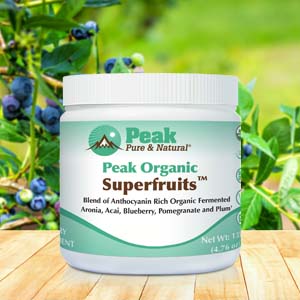By now, you’ve probably heard about the 30+ health risks, including heart disease, associated with ultra-processed foods (UPF) — the kinds that bear little to no resemblance to the real, whole foods that made up our grandparents’ diets.
So it’s not surprising that these foods, which make up a chunk of the standard American diet, are fueling the growing diabetes epidemic.
However, what may surprise you is just how little of them you can consume to dramatically raise your risk of blood sugar problems.
Luckily, the same research reveals you can beat back this risk without completely overhauling your diet…
Ultra-processed: a recipe for blood sugar problems
After University College London researchers compared the consumption of UPF to the health outcomes of close to 312,000 people over nearly 11 years, the results were clear…
Every 10 percent increase in the amount of UPF in a person’s diet is linked with a 17 percent increase in type 2 diabetes risk.
And four types of ultra-processed foods were found to be the worst contributors. They include:
- Savory snacks (think salty chips, cheese-filled pretzels, etc)
- Animal-based products like processed meats (includes luncheon meats)
- Ready meals (especially the kind you don’t refrigerate. Imaging the additives to make that possible!)
- Sugar-sweetened and artificially-sweetened beverages (this includes juices)
These foods undergo extensive “manufacturing.” In that process, any ingredients that start as recognizable foods are processed to such a state they become unrecognizable. Nutrition gets tossed in the process and additives (emulsifiers, stabilizers and gelling agents) specifically designed to change taste and texture and increase shelf life take their place.
Take it down a notch and reduce your risks
The researchers say that while eating UPFs increases the risk of blood sugar problems, this risk can be lowered simply by eating foods that take the level of processing down a notch.
Foods designated as “processed foods” (PF) fit that bill. They undergo a minimum amount of processing and include foods like canned fruits and vegetables, packaged bread, cheese slices or cheese spreads. The researchers believe substituting just 10 percent of UPFs with 10 percent of PFs reduced diabetes risk by 18 percent.
Even better, you can ease into it. While you work on ditching the 4 worst UPF offenders, enjoying a breakfast biscuit and jelly or bowl of cereal is OK and may even be beneficial.
Even though also considered UPFs, breads, biscuits and breakfast cereals, sweets and desserts and, of course, plant-based alternatives, were all associated with a lower incidence of type 2 diabetes.
There was another surprise in the study, this time in the processed foods category, that also may have lowered diabetes risk: consumption of beer and wine.
This isn’t an endorsement (alcohol has links to other diseases), but an explanation…
In their study data, which was gathered from individuals from eight European countries, 30-50 percent of the processed food intake in the study came from beer and wine, which has been associated with a lower risk of type 2 diabetes in previous research.
Also included on the healthier end of the spectrum are artisanal breads, preserved fruits and vegetables and salted nuts.
So if your focus is keeping your blood sugar in check, this research has now given you a powerful way to make that happen — without feeling like you have to deprive yourself or start growing your own food.
Sources:
Replacing ultra-processed foods in diet reduces type 2 diabetes risk – Science Daily
Read full article here




